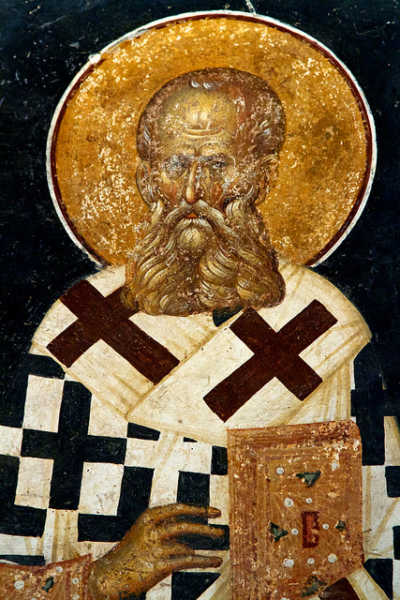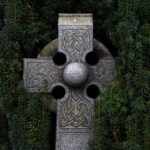We run our website the way we wished the whole internet worked: we provide high quality original content with no ads. We are funded solely by your direct support. Please consider supporting this project.

How the Church Fathers Read the OT
After the completion of the New Testament, the church fathers developed theology in their increasingly Gentile post-apostolic church in such a way that many of the distinctively Jewish features of the NT’s use of the OT diminished. However, this was not the case with regard to the Christocentric interpretation of the OT that was so central to how the NT writers interpreted the OT. As noted historian, Robert Wilken, has noted, the early church fathers didn’t consider the original meaning of OT passages to be altogether irrelevant, but they did consider it merely “preparatory” for the fuller meaning of passages that was unlocked when they were read in the light of Christ. The distinctly “Christian understanding” of Scripture was for them “oriented toward the living Christ revealed through the words of the Bible…”[1]
For these believers, writes Denis Farkasfalvy, “Jewish holy books function and are interpreted as documents of a Christ-centered salvation history with its full and true meaning apparent only in the light of the Church’s faith in Christ.”[2] Indeed, according to Claire McGinnis, “[n]ot only did the NT serve as the key to understanding the Old” for these fathers, but the uniform assumption of interpreters during this period was that “the books of the Old were about Christ.”[3] Following the precedent of the NT, these fathers understood Christ to be the fulfillment of fundamental OT motifs as well as of specific OT prophecies.
Following this precedent, these fathers relied on typological as well as allegorical interpretive strategies to discern Christ in the OT. It was by this means that Origen, Gregory of Nyssa, John Cassian and others were able to discern how violent portraits of God in the OT bore witness to Christ, as argued in The Crucifixion of the Warrior God.
By means of creative Christocentric interpretive strategies such as these, the Bible became for these interpreters “a vast field of interrelated words, all speaking about the same reality, the one God revealed in Christ,” as Wilken notes. The central goal of early Christian interpreters, he continues, was “to find Christ in surprising and unexpected places.” [4] And it was primarily by this means that the early Church was able to continue to embrace the OT as its own.
[1] R. L. Wilken, “Interpreting the Old Testament,” Isaiah: Interpreted by Early Christian and Medieval Commentators, trans. and ed. R. L. Wilken, A, R. Christman, and J. Hollerich; The Church’s Bible, xvii.
[2] Denis Farkasfalvy, Inspiration and Interpretation, 23.
[3] Claire McGinnis. “Stumbling over the Testaments: On Reading Patristic Exegesis and the Old Testament in Light of the New,” Journal of Theological Interpretation (April, 2010), 15-31.
[4] Wilken, “Interpreting the Old Testament,” xviii.
Photo credit: Nick in exsilio via Visual Hunt / CC BY-NC-SA
Category: General
Tags: Bible Interpretation, Church Fathers, Cruciform Theology
Related Reading

Podcast: How Do You Make Sense of the Killing of Ananias and Sapphira?
Greg considers: “Who actually killed Ananias and Sapphira.” This ancient murder mystery has enormous theological implications! Listen as Inspector Boyd hunts for clues and builds a most compelling case. http://traffic.libsyn.com/askgregboyd/Episode_0108.mp3 Photo credit: jean louis mazieres via VisualHunt.com / CC BY-NC-SA

The Starting Point for “Knowing God”
While it makes sense that Hellenistic philosophers embraced knowledge of God as the simple, necessary and immutable One in an attempt to explain the ever-changing, composite, contingent world (see post here for what this means), it is misguided for Christian theology to do so. By defining knowledge of God’s essence over-and-against creation, we are defining God’s essence…

The Reformers and the Centrality of Christ
The Christocentric nature of the Church’s hermeneutic approached a zenith in the Protestant Reformation. While Luther and Calvin rejected allegorical interpretation, in theory if not in practice, they nevertheless relied on typology and other creative hermeneutical strategies to discern how Christ was the subject matter of the OT. For Luther, Jesus was “the Word” in…

Quotes to Chew On: Conflicting Depictions of God
“This is something like the way I believe we should respond when we encounter biblical narratives that depict God doing things we can’t imagine Christ doing. For example, I can’t for a moment imagine Jesus—the one who made refusing violence and loving enemies a condition for being considered a child of God—commanding anyone to mercilessly…

If the violent depictions of God in the Bible are not completely accurate, isn’t all of Scripture up for debate?
Question: I’m very intrigued by your cruciform hermeneutics and can’t wait for your book (Crucifixion of the Warrior God) to come out. But I have to say that it strikes me as dangerous. You’re basically saying that the violent portraits of God in the OT are not completely accurate. But doesn’t this place us flawed…

God’s Moral Immutability
Classical theologians from the fourth and fifth centuries on were very concerned with protecting their understanding of the metaphysical attributes of God—like timelessness, immutability, impassibility—by assessing biblical portraits that conflicted with these attributes to be accommodations. However, once we resolve that all our thinking about God must be anchored in the cross, our primary concern…
